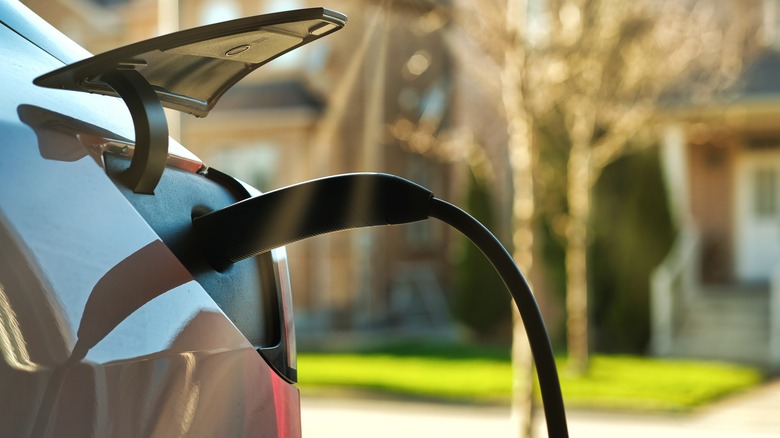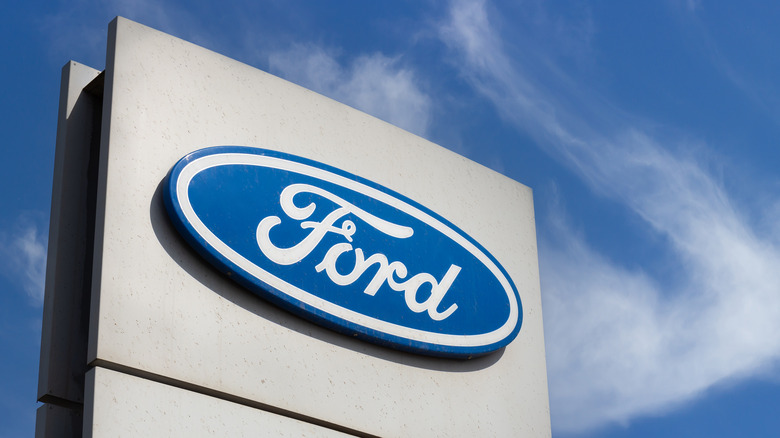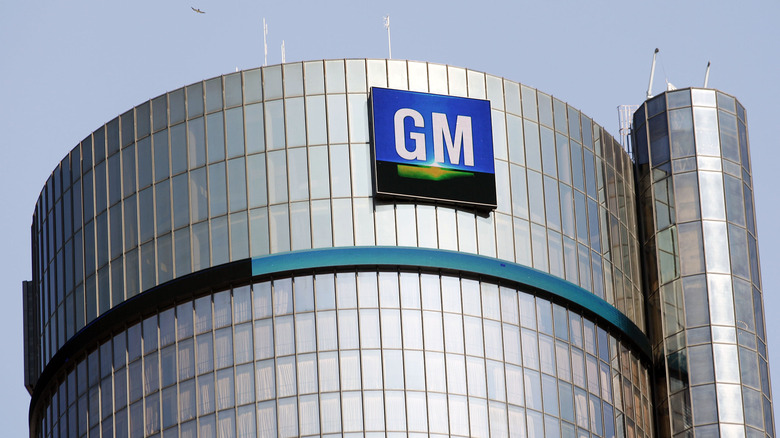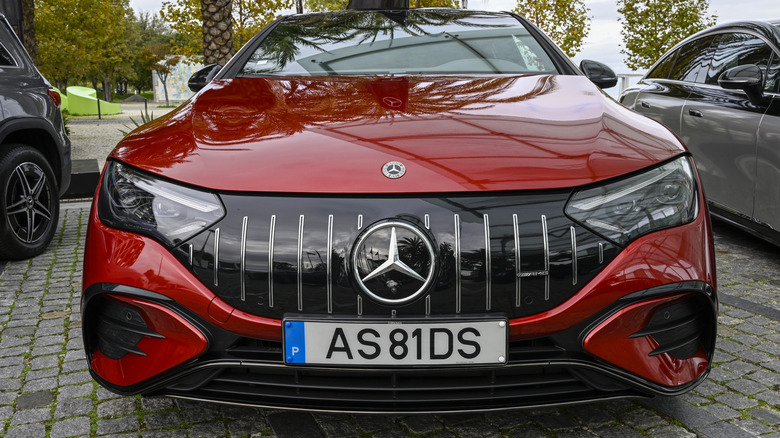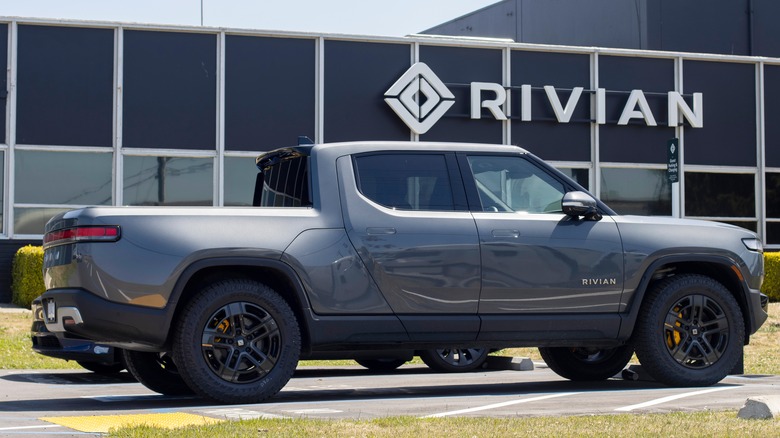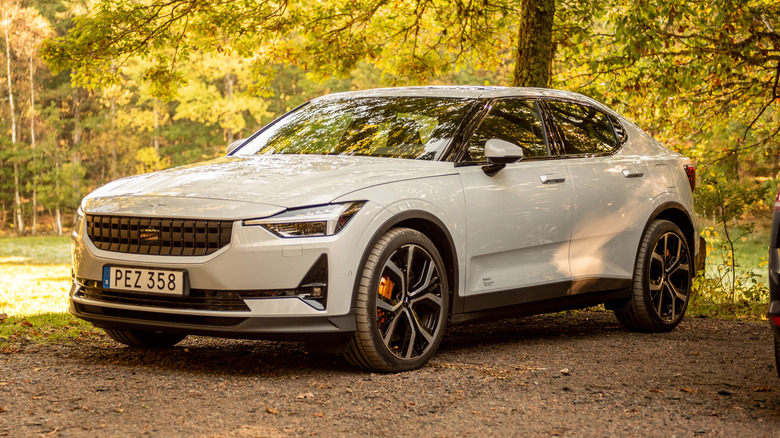Every EV Brand That Will Support Tesla's NACS Charging Connector
There are currently three significant systems for charging EVs in the United States — the Combined Charging System (CCS), CHAdeMO (primarily encountered in the Nissan Leaf), and the North American Charging Standard (NACS). While the vast majority of automakers in the U.S. and elsewhere in the world use CCS, when it comes to charging networks, the NACS network (Tesla Superchargers) is far more extensive than any single network of CCS chargers.
NACS is currently less a national standard and more the charging technology developed and used by Tesla for its vehicles and Supercharger network. With Tesla releasing the designs to the public in 2022, other automakers can integrate NACS into their new EVs, and some have begun to get on the Tesla bandwagon.
So far, only two major automakers have announced that they will adopt the NACS charger for their future electric vehicles. Stellantis, which owns Chrysler, Dodge, RAM, Jeep, Maserati, Alfa Romeo, Abarth, and more, has not made any commitments as they are still evaluating NACS.
Ford
The Ford Motor Company was the first to announce its adoption of NACS. Following their May announcement, it is likely that both of their brands, Lincoln and Ford, will be adopting the standard. Ford has announced that starting in 2025, their new EVs will be equipped with NACS from the factory, though access to Tesla's Supercharger network will begin earlier.
As it already has three production EVs, the Mustang Mach-E, F-150 Lightning, and the E-Transit, Ford will first roll out NACS support for existing vehicles in Spring 2024. Because these vehicles are equipped with CCS, current owners will have to invest in an adapter manufactured by Tesla, as will the owners of EVs made by manufacturers that decide against adopting NACS. Users will then have access to all of the chargers on Ford's BlueOval Charge Network and the Tesla Superchargers installed across the U.S. and Canada.
While Lincoln has yet to release its EV offerings, the plan is to become an electric-only automaker by 2030, so its vehicles should come with seamless NACS integration.
GM
General Motors has announced that they will adopt NACS on a similar timeline to Ford, with the primary rollout happening in early 2024 and factory integration of the standard into new vehicles beginning in 2025.
With the integration of NACS into the GM platform, existing owners of Chevrolet, Cadillac, and GMC EVs (currently only the Hummer EV, though a Sierra EV is coming in 2024) will gain access to the Tesla Supercharger network via an adapter in addition to the charging stations already made accessible via their Ultium Charge 360 Network. As NACS charging will be built into its vehicles from 2025, GM has already committed to releasing an adapter allowing NACS-enabled vehicle owners to access CCS fast-charging stations.
Meanwhile, Buick is yet to release its own EV. However, with plans in place for their first Electra model to debut in 2024, buyers can also expect NACS integration on their platform.
Mercedes
In July, Mercedes announced it would be offering vehicles with NACS ports from 2025. The vehicles will be capable of hooking up to Tesla's already-vast supercharging network, and will also be able to use the high-speed charging network Mercedes intends to build in North America. Existing Mercedes electric vehicles will be able to access Tesla's supercharging network from 2024, but will need to use an adapter.
The German manufacturer's own network will initially consist of 2,500 high-speed chargers and is expected to be complete by 2030. The stations themselves will be "open to all brands" and can be used by vehicles with both NACS ports, and the already established CCS charging system. Mercedes is the first German manufacturer to adopt Tesla's charging system and the third European manufacturer to jump on board, with the first being Volvo and the second being Polestar. While Ford and GM's acceptance of the charging system was a major boost for the NACS — large, establish
Rivian
Following on from Ford and GM's decision to adopt the standard, EV manufacturer Rivian announced that it is negotiating access to Tesla's Supercharging network and will be adding NACS ports to its vehicles in the future. The additional ports will supplement Rivian's own network, which is set to include 3,000 North American charging stations when it is completed. However, progress is slow on that front with only 30 Rivian chargers reported active in April 2023.
In a statement, Rivian CEO RJ Scaringe says: "We're excited to work with Tesla and to see collaborations like this help advance the world toward carbon neutrality. The adoption of the North American Charging Standard will enable our existing and future customers to leverage Tesla's expansive Supercharger network."
Rivian will start producing vehicles with NACS ports from 2025. The deal itself will be finalized in early 2024, and current Rivian owners will be able to use Tesla's network from then provided they have a CCS to NACS adapter.
Volvo/Polestar
In June 2023, Volvo became the first European automotive manufacturer to announce it was adopting the North American Charging Standard. As with many manufacturers, vehicles won't roll off Volvo's production lines with NACS ports fitted until 2025. Current Volvo EV owners, and those planning on buying one before 2025, will still be able to access the network from mid-2024. An adapter will be required if the Volvo in question is fitted with a CCS port. As with other manufacturers, the agreement will grant Volvo drivers full access to Tesla's North American charging network. The network includes 12,000 charging points across the United States, Canada, and Mexico.
Volvo's close relative, Polestar, has also announced it is on board with the charging system and will be fitting it to its vehicles from 2025 onwards. The Cino-Scandinavian company's CEO, Thomas Ingenlath, was optimistic about the decision and believes access to Tesla's network "will greatly increase the rate of EV adoption in a key automotive region." While new Polestar vehicles won't be fitted with the port until 2025, its customers will actually be able to access the Supercharging network from mid-2024 onwards — though this will require the use of an adapter. Polestar has stated that it will supply adapters to interested customers once access to the network opens up.
